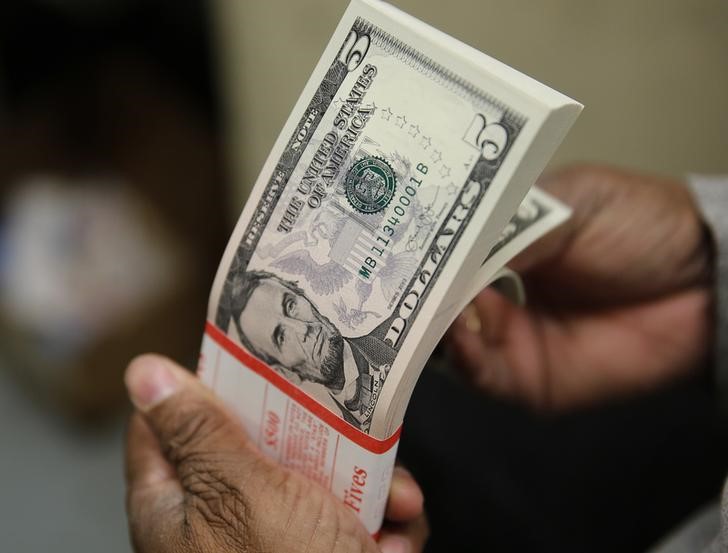(Bloomberg) -- The threat of trade war has put King Dollar back on its throne and usurped an ever-popular bet on emerging-market currencies in one fell swoop.
As the Bloomberg Dollar Index hits a 2019 peak, a gauge that measures carry-trade returns from eight emerging markets, funded by short positions in the greenback, has given up its gains this year. Donald Trump’s trade salvo on $200 billion worth of Chinese imports on May 10 has lent strength to the dollar -- at the cost of developing-world currencies from Taiwan to South Africa to Brazil.
“Emerging-market currencies are vulnerable to deterioration in the trade war,” said Salman Ahmed, chief global strategist at Lombard Odier Investment Managers, who pared an overweight currency position to neutral in April. “Expect no short-term resolution.”
As tensions escalate, traders are taking a hard look at whether the developing world can surmount problems that keep their currencies intertwined with the greenback’s ups and downs, or at least counteract a strong dollar with rate differentials and higher yields.
JPMorgan Chase & Co (NYSE:JPM). strategists are among doubters: last week they turned underweight on emerging-market currencies, especially the South African rand and Taiwanese dollar.
“The change in trajectory of trade talks could see a period of downward growth revisions again for emerging markets,” they wrote in a report. “We think the market will need to adjust their expectations around the implications from U.S.-China trade talk and tariffs.”
If the two sides fail to strike a deal that averts all-out trade war when Presidents Trump and Xi Jinping meet at the G-20 summit toward the end of next month, China’s renminbi could be hit with a depreciation of 10%, according to estimates by Nordea Investment Funds. That could create a domino effect across emerging-market currencies.
No wonder the negative correlation between emerging-market currencies and the dollar has deepened and is holding near this year’s high.
And things could get worse from here.
As the greenback draws strength from its status as a haven currency and an economy that’s still outperforming, life could get tougher for emerging-market nations. Their hard-currency obligations -- which have doubled since 2010 to $3.7 trillion, according to the Bank for International Settlements -- look even bigger as the dollar gains.
There are some consolations. A dovish tilt by the world’s central banks and lower-for-longer rate regimes will keep debt refinancing costs low, at least, and investors pouncing on higher yields. And even if the dollar’s appeal as a funding currency fades, other options retain their allure. Carry trades financed with the euro are popular, for example, thanks to Europe’s rock-bottom rates.
Still, fears of a slowdown in China expose the danger of undiversified economies that are too reliant on exports. JPMorgan estimated a “full fledged” trade war without any counter measures from China will cost Chinese GDP growth one percentage point in one year. That could hit emerging economies hard given that their exports to the country have more than doubled to $773.4 billion in the past 10 years.
“The dollar is benefiting greatly from risk aversion,” said Sebastien Galy, a senior macro strategist at Nordea Investment Funds who is cautious on EM currencies. “While some developing economies are in a better position to handle external shocks, there’s still a lot of vulnerability out there.”
